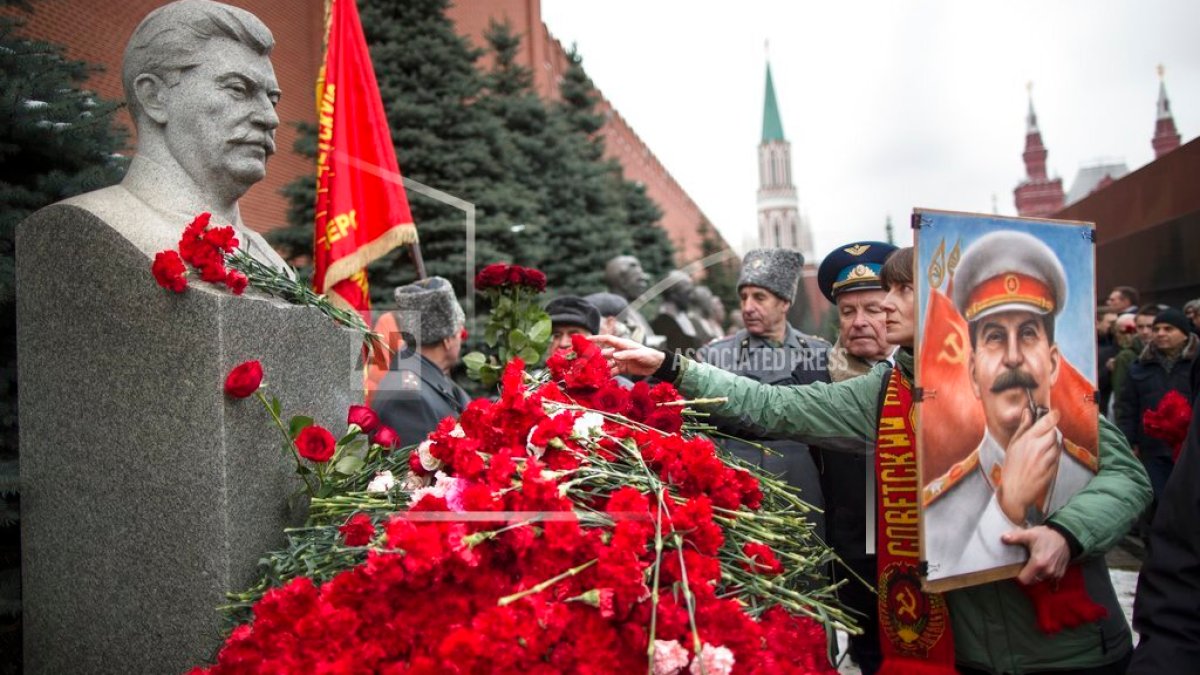Litwin
Diamond Member
why do you think Western academia and our Governments have ignored the legacies of the Moscow Empire, colonial wars and colonisation for so long ?
As Ronald Gregor Suny, historian of Soviet imperial nation-building, noted in a 2017 interview, “Before the late 1980s, no one cared about non-Muscovites . Sovietology and Soviet studies [were] about the centre and the top – who was standing where on the Kremlin, on the mausoleum, and so forth.”
The generation of scholars who started studying the Soviet Union in the late 1980s and early 1990s were also shaped by their firsthand experience of the country. When they travelled as foreign students to Moscow, they found impoverished people. Empty shelves and pervasive poverty made Muscovites look like victims of the Soviet regime, and financially, Soviet Moscow seemed more like a European periphery than an imperial metropole, which they associated with material affluence.
To understand Muscovite ulus , one needs to listen to those who lived under Muscovite colonial rule. To understand former and current Muscovite colonies, one needs to listen to historians from these places and study their cultures, languages and histories, both written and unwritten. To appreciate the ways out of colonial dictatorships, one needs to study the successful transformations of states like Ukraine. This would require dismissing the myth of the “artificial nation” and finally seeing Muscovy as an empire.

 www.aljazeera.com
www.aljazeera.com
the only solution :

As Ronald Gregor Suny, historian of Soviet imperial nation-building, noted in a 2017 interview, “Before the late 1980s, no one cared about non-Muscovites . Sovietology and Soviet studies [were] about the centre and the top – who was standing where on the Kremlin, on the mausoleum, and so forth.”
The generation of scholars who started studying the Soviet Union in the late 1980s and early 1990s were also shaped by their firsthand experience of the country. When they travelled as foreign students to Moscow, they found impoverished people. Empty shelves and pervasive poverty made Muscovites look like victims of the Soviet regime, and financially, Soviet Moscow seemed more like a European periphery than an imperial metropole, which they associated with material affluence.
Dissolution without decolonisation
Influential works by historians like Ronald Grigor Suny (The Revenge of the Past) and Andreas Kappeler (Russia as a Multinational Empire) have pointed to the violent Bolshevik policies towards colonised nations and their resistance. Others like von Hagen (Does Ukraine Have a History?) and Timothy Snyder (Bloodlands) who have written from the point of view of the colonised were able to properly predict and warn of historical continuities and dangers still posed by Russia today for these nations.To understand Muscovite ulus , one needs to listen to those who lived under Muscovite colonial rule. To understand former and current Muscovite colonies, one needs to listen to historians from these places and study their cultures, languages and histories, both written and unwritten. To appreciate the ways out of colonial dictatorships, one needs to study the successful transformations of states like Ukraine. This would require dismissing the myth of the “artificial nation” and finally seeing Muscovy as an empire.

How Western scholars overlooked Russian imperialism
For far too long, Western academia has ignored the legacies of the Russian Empire and colonisation.
the only solution :